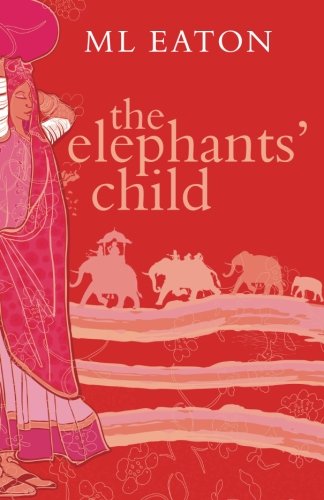The Elephant’s Child
The first book in a series of novella-length stories about a young girl’s perspective on life in the former Bombay, India, and Sierra Leone, during the 1950s are not really historical novels, nor children’s books, but thinly veiled memoirs. They draw on the author’s own experiences in British colonial and post-colonial countries, in the tradition of Elspeth Huxley’s classic African memoir, The Flame Trees of Thika.
In M L Eaton’s books, the little girl, Melanie, forges a lifelong love affair with both Africa and India, and is forever changed and influenced by her brief stays there.
Her relatively elderly father, recovering from post-traumatic stress disorder in Burma during World War II, is a civil engineer leading projects around the Empire and Commonwealth, accompanied by his wife, whose illness increases Melanie’s isolation in each of her new homes. Among so much that is alien to her, she finds solace in unexpected places: in Africa, in the friendship of one of the servants (the chapter “We is Twins” is sublime), and in India, in an almost psychic bond first with local elephants and then with her aging ayah, Lakshmi.
Evoking a strong sense of place, the author’s occasionally florid phraseology is at odds with Melanie’s vocabulary, but the power of her memories demonstrates the lasting impact of her trips. There is also the occasional info-dump, particularly with regard to the history of Sierra Leone, but as I knew very little about the country, in this case I was grateful for it.
The books are products of their era, and occasionally include attitudes towards to natives with which the politically correct brigade might take issue. Those concerns aside, it is a rewarding and heartwarming read for anyone interested in armchair travel to another time and place, even though it is not strictly speaking historical fiction.
(First two books of the series reviewed together)










